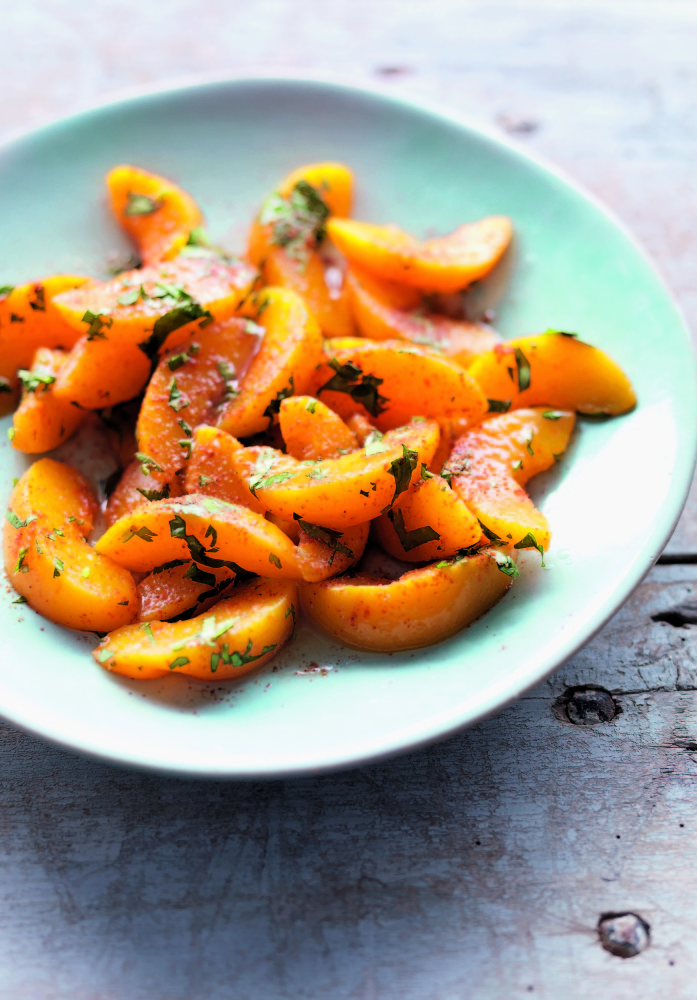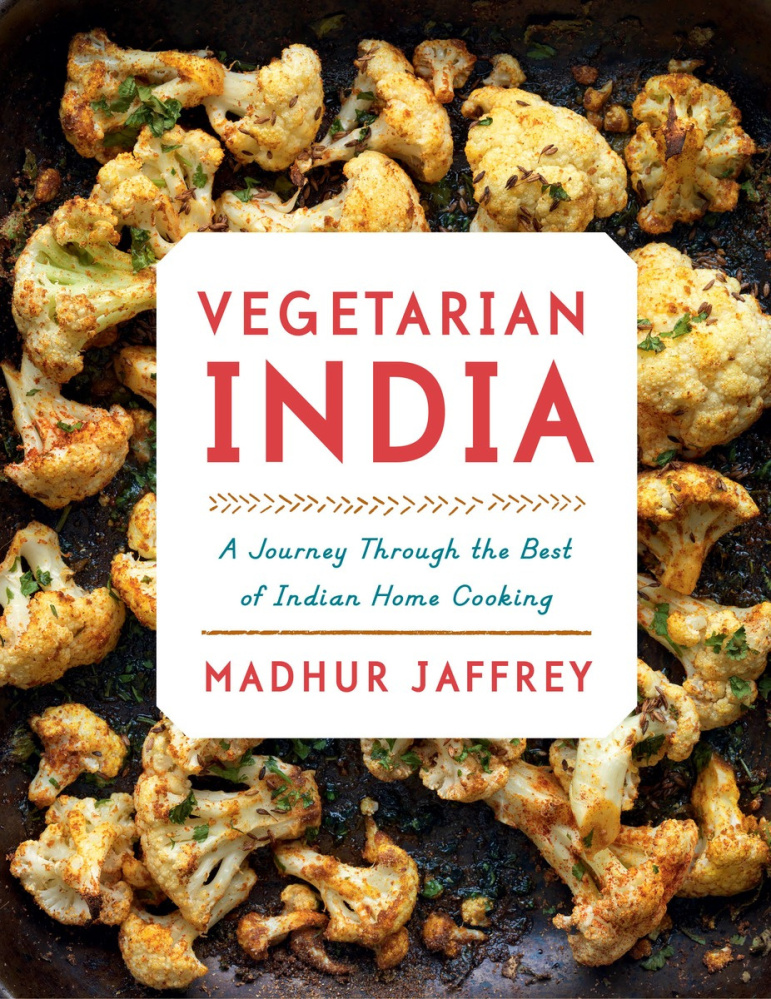“Vegetarian India.” By Madhur Jaffrey. Knopf. $35.
I like eating Indian food and I like cooking Indian food, so it’s no real surprise that I own three Madhur Jaffrey cookbooks and her terrific memoir, “Climbing the Mango Trees.”
Wikipedia credits her for “bringing Indian cuisine to the Western world with her debut cookbook (1973),” and that’s not much of a stretch. If you don’t know Jaffrey as a cook, you may know her as an actress. Her many film credits include “Six Degrees of Separation” and “A Late Quartet.”
Jaffrey’s latest book is “Vegetarian India.” There may be no better world cuisine to explore for interesting, varied vegetarian dishes. Her aim, she writes, is to take readers “on an adventurous ride through India, tasting the real vegetarian dishes that Indians eat in the privacy of their homes, in their local cafes and temples, at the parties they throw for each other, and at their wedding banquets and religious festivals.”
It’s nice to be a guest in Indian homes and at Indian parties, as Americans are unlikely to encounter this food at the typical Indian restaurant in the States. I can’t recall ever having seen beets on the menu of an Indian restaurant here; the book’s Punjabi-Style Beets with Ginger changed my perspective on the vegetable.
And how often have you run into a nice cabbage side dish at your local Indian eatery? Never, as far as I can remember, which is a pity. Jaffrey’s Stir-Fried Cabbage with curry leaves, hot green chilies and mustard seeds is “simple and delicious,” I scribbled in a note to myself on the recipe.
My favorite in the category of Indian Food I’ve Never Eaten Nor Even Imagined Before was the Fresh Peach Salad with lime, cilantro, salt and cumin. Yum! (And tasting to me like Mexico, too.) I paired it with Jaffrey’s Sri Lankan Chili-Fried Eggs, also excellent, on a cool spring morning, but if we get a muggy spell this summer, I know just what dish will revive me.
Shopping for the recipes in “Vegetarian India” may present a challenge to the Maine cook. Jaffrey makes no concessions to the unprovisioned kitchen; the recipes call for ingredients I haven’t found easy to obtain here, for instance poha (flattened rice), urad dal (a type of pulse), rice powder and fresh curry leaves. If I ever do find them (or get around to ordering them online), I will be all over Jaffrey’s chapter on breads and savory pancakes as well as her recipes for poha.
The recipes themselves are not difficult, but many are time-consuming. It’s imperative that you measure out and organize the many spices and chop the many vegetables before you turn on the stove.
With anything, including cookbooks, it’s a special pleasure when the whole package comes together: Good recipes. Good writing. Good looks. “Vegetarian India” hits the mark on all counts. The recipes are clear; the headnotes are practical, informative and interesting; the sidebars are useful. Add to these the beautiful photographs of food and of India, and home cooks are in for an adventurous – and delectable – ride.
FRESH PEACH SALAD
Make the salad just before eating it, Jaffrey says, as it gets watery as it sits. During her childhood in India, it was usually made from starfruit, bananas, roasted white yams or guavas, because peaches cost too much. Since I rarely find decent peaches in Maine, even during the season, and since mangoes were in the markets when I was testing this recipe, I made it with mango and banana slices.
Serves 2-3
2 ripe peaches, peeled and each cut into 10 to 12 slices
1/3 teaspoon salt
Freshly ground black pepper
1/2 teaspoon roasted and ground cumin seeds
1/8 teaspoon chili powder, or more as desired
1 teaspoon lemon or lime juice
2 teaspoons finely chopped cilantro
Combine all ingredients in a bowl. Taste for the balance of seasonings, adding more of anything you wish.
Send questions/comments to the editors.





Comments are no longer available on this story